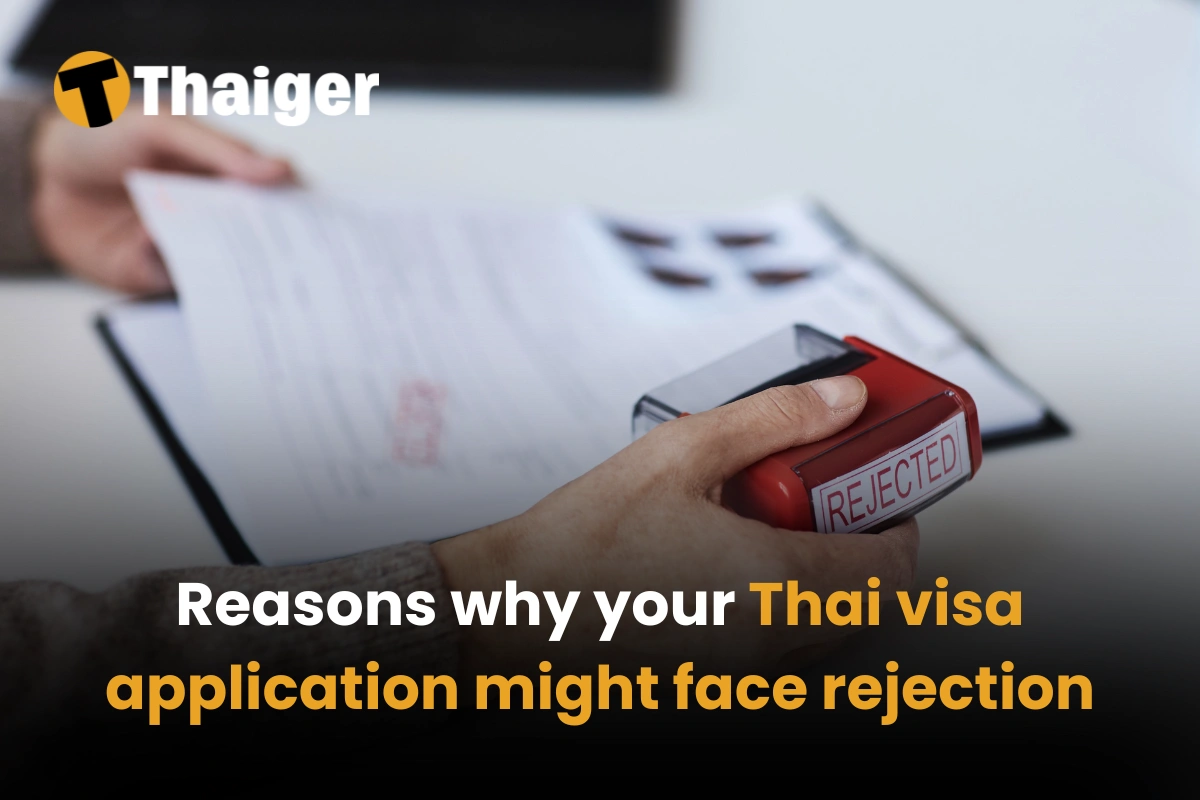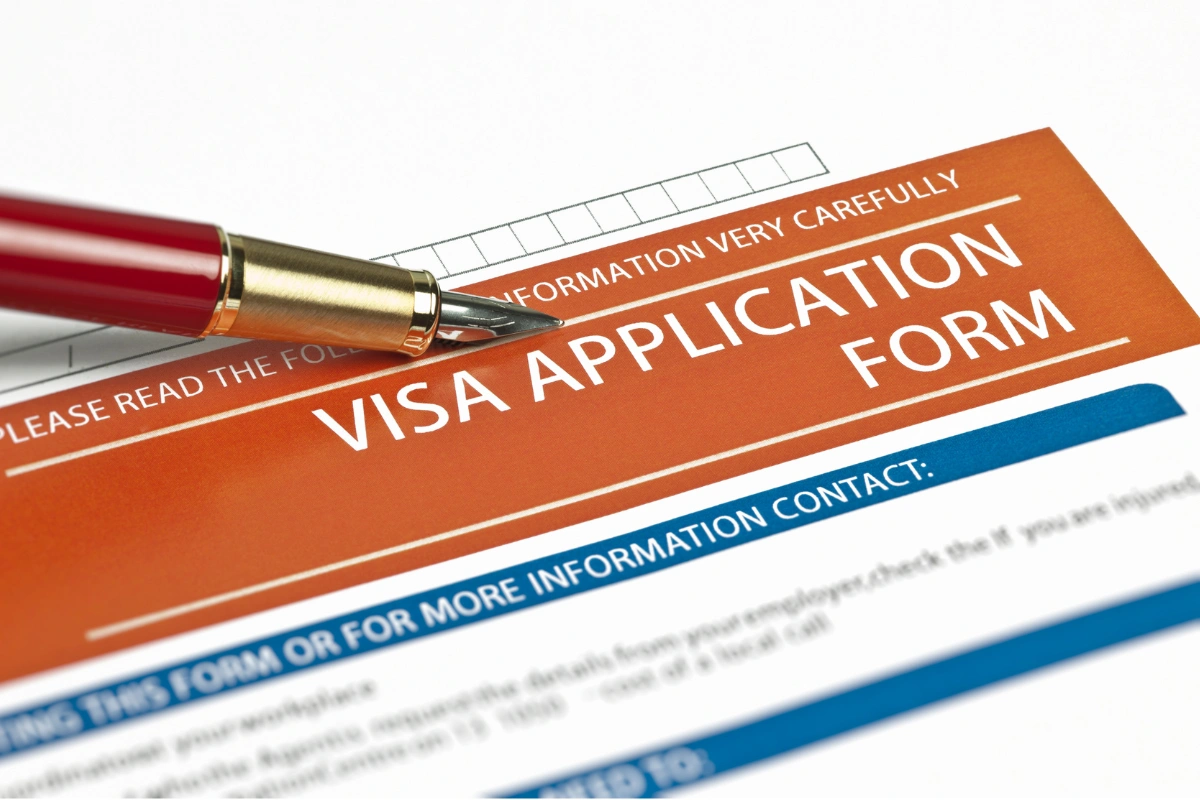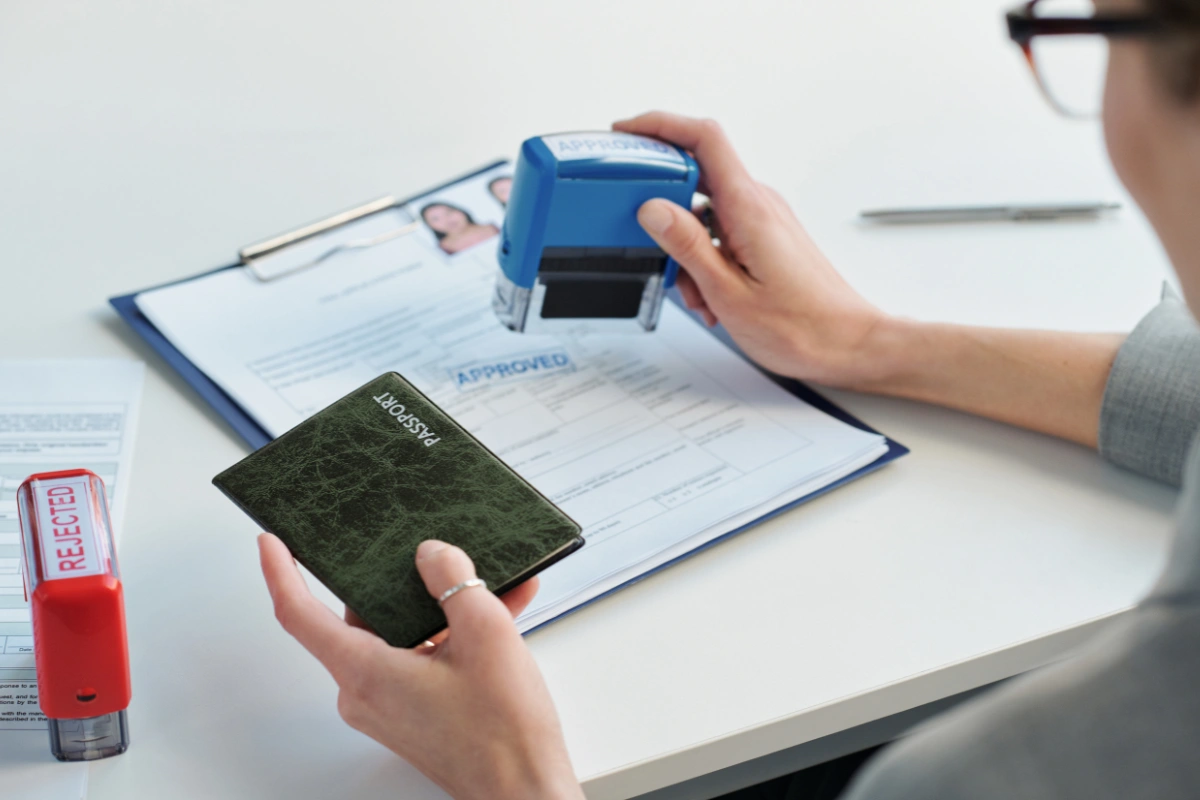Reasons why your Thai visa application might face rejection

Planning a trip to Thailand? It’s crucial to understand what could prevent you from getting a Thai visa. Navigating the visa process can be tricky, and the last thing you want is an unexpected hiccup.
Common reasons for disqualification from a Thai visa

Your application for a Thai visa could hit a snag due to several factors. Being aware of these hurdles beforehand can streamline your process.
Criminal record
Criminal records can affect a person’s ability to get a Thai visa or enter Thailand. Immigration officers conduct detailed background checks and may reject applications, especially for serious offenses. While minor past offences, particularly from years ago, might not automatically lead to rejection, crimes that resulted in imprisonment can make approval unlikely.
Thailand’s Immigration Office is connected to international criminal databases, including the U.S. NCIC system, allowing authorities to identify individuals with criminal records, even those holding valid visas. Immigration officers have wide discretion to deny entry to anyone they consider a risk to public safety, morality, or culture. Decisions can vary, and even minor offences may lead to refusal at the port of entry.
Lack of sufficient funds
Financial stability is a key requirement for obtaining a Thai visa. Applicants must provide evidence of sufficient funds, such as bank statements, pay stubs, or sponsorship letters, to prove they can support themselves during their stay. Thai authorities prioritise this to ensure visitors won’t overstay or take up unauthorised work.
For longer stays or specific visas, like retirement visas, applicants may need to meet minimum bank balance or income requirements. Failure to show adequate financial resources often results in visa rejection, as it raises concerns about the ability to sustain oneself legally in Thailand.
Overstaying previous Thai visas
False information on the application
Incomplete documentation
Incomplete documentation is a common reason for Thai visa application rejections or delays. The Royal Thai Consulate-General requires specific documents to process applications, including:
- A valid passport with at least 6 months of validity and two blank pages
- A completed and signed visa application form
- Recent passport-sized photos meeting set criteria
- Proof of accommodation in Thailand
- Evidence of sufficient funds
- A confirmed return ticket (for tourist visa, single entry)
- A detailed travel itinerary
Incomplete submissions can result in immediate rejection, and the consulate may ask for additional documents if needed. Visa fees are non-refundable, even for denied applications. To avoid issues, applicants should carefully check all documents against the official requirements before submission.
Health concerns
Thailand has specific health requirements for visa applicants, particularly for long-stay visas. Applicants must be free from certain prohibited diseases, including leprosy, tuberculosis, elephantiasis, drug addiction, and third-stage syphilis. A medical certificate, issued within the last three months from the applicant’s country, is required to confirm they are free of these conditions.
For long-stay visas like the Non-Immigrant O-A and O-X, proof of health insurance is mandatory. The O-A visa requires coverage of at least 3 million THB (100,000 USD) for general illnesses and COVID-19 treatment. The O-X visa requires a minimum of 40,000 THB for outpatient care and 400,000 THB for inpatient care. Applicants failing to meet these health or insurance requirements risk having their visa applications denied.
Overapplication
Incorrect visa type
Choosing the wrong type of Thai visa is a common mistake that often leads to rejection. Applicants must ensure the visa type matches their purpose of visit. For example:
- Tourist visas are for tourism only and cannot be used for business or work.
- Non-immigrant visa “B” is required for business meetings, work, or exploring business opportunities.
- Those seeking medical treatment must provide a medical appointment letter from a Thai hospital.
Submitting the wrong visa type, such as a tourist visa for business purposes, will result in denial. Visa types cannot be changed after submission, and fees are nonrefundable. To avoid issues, applicants should carefully review requirements and consult official sources before applying.
Specific visa categories and disqualification criteria
When planning your trip to Thailand, understanding the specific requirements and potential disqualifiers for different visa categories is crucial. This section delves into the nuances of tourist and business visas, helping you navigate through the application process successfully.

Tourist visa
A Thai tourist visa is designed strictly for tourism purposes, and any work or business activities are prohibited. Violating this rule not only disqualifies you but could also impact future applications.
Key disqualification factors:
- Purpose of Visit: Using a tourist visa for work or business is a violation and grounds for disqualification.
- Financial Proof: Applicants must demonstrate adequate funds to cover their stay, including accommodation, meals, and travel. Insufficient proof can lead to rejection.
- Visa History: Overstaying a previous visa is a serious offence and can result in disqualification and a temporary ban on re-entry.
- Passport Validity: Your passport must be valid for at least six months from your intended date of entry. An expiring passport will lead to disqualification.
- Application Accuracy: Incomplete or false information on the application form is a guaranteed reason for rejection. Accuracy and honesty are critical.
Understanding these factors and preparing your application thoroughly will increase your chances of approval and ensure a smooth travel experience to Thailand.
Business visa
Applying for a Thai business visa comes with stricter requirements and closer scrutiny than other visa categories. This visa is specifically for individuals intending to engage in business-related activities in Thailand, and meeting the necessary criteria is essential for approval.
Key disqualification factors:
- Lack of a legitimate business letter: A letter from a recognised company in your home country or Thailand is mandatory. This letter must clearly outline the purpose of your visit, including details of your business activities, meetings, or conferences. Without this, your application will likely be rejected.
- Insufficient financial proof: Business visa applications require proof of financial stability, both for your stay in Thailand and for your business. This includes demonstrating your ability to support yourself and showing that your business is financially sound.
- Missing documentation: Proper documentation, such as business licenses, meeting invitations, or appointment confirmations, is crucial. Without clear evidence of business engagements in Thailand, your application may be denied.
- Criminal record: A clean criminal record is non-negotiable. Any history of criminal activity, regardless of the severity, can result in disqualification.
Meeting the specific requirements for a Thai business visa is critical to avoid disqualification. Ensuring all documents are accurate, complete, and align with your purpose of visit reflects respect for Thailand’s immigration policies and increases your chances of approval.
Appealing a visa disqualification decision
When your Thai visa application faces rejection, it’s not the end. You’ve got room to challenge this disqualification. Understanding the appeal process is crucial to potentially turning the decision in your favour.

First off, identify why they denied your visa. This is more specific to Thai visa protocols, but typically, refusal reasons include insufficient documentation or failing to meet the visa criteria. Once you have this information, you can address the issue directly in your appeal.
Gather Additional Support: Begin by collecting any new evidence or documents that bolster your case. This could mean getting more detailed financial statements, letters of invitation from hosts in Thailand, or clearer explanations of your travel itinerary.
Submit a Formal Appeal: You need to submit a written appeal to the Thai embassy or consulate where you initially applied. Keep it professional, concise, and to the point. Outline clearly why you believe the disqualification decision was incorrect, and provide all the supporting evidence you gathered.
Timing Is Everything: Don’t delay. Be aware of any time limits for filing an appeal. Waiting too long might mean losing the chance to challenge your visa disqualification.
The Waiting Game: After you’ve submitted your appeal, be prepared to wait. Processing times vary and can take several weeks or even months. During this period, stay patient but also proactive. Check in periodically for updates on your appeal status.
If you’re seeking comprehensive guidance to ace your visa interview in 2024, explore our meticulously crafted article: The Ultimate Preparation Checklist for Your Visa Interview.
Latest Thailand News
Follow The Thaiger on Google News:


























